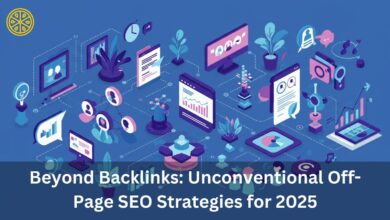The Economics of ‘Move-First, Job-Later’—Why More People Are Relocating Before They’re Employed

Relocation patterns are changing, and more people are relocating before they’re employed. This move-first, job-later trend reflects shifting economic pressures and new opportunities. Rising housing costs, flexible job markets, and the spread of remote work all push workers to act fast. Many choose to settle in affordable cities or regions offering better prospects, even without a job in hand. While this path carries risk, it also opens doors to faster local networking and career growth.
Why the Move-First, Job-Later Trend Is Rising
As the job market shifts, more people are relocating before they’re employed to tap into the growing number of remote and hybrid work opportunities. Economic pressures, like rising housing costs in major cities, have also made moving without employment seem like a better option, offering individuals the chance to improve their quality of life. This flexibility allows job seekers to settle in cities that fit their lifestyle while still having access to a global workforce.
The rise of remote work is also shaping the future of modern work, offering professionals the chance to balance career and personal life in new ways. This shift has given workers the power to choose where they live and work, without being confined to specific regions or cities.
The Cost of Waiting for Work Before Moving
For many, waiting to secure a job before relocating comes with its own financial burdens. Housing prices are rising across major cities, and waiting to find work before moving can mean higher rent costs, especially in competitive markets.
On the other hand, moving without a job may allow individuals to take advantage of more affordable housing in growing areas. However, the trade-off is a period of uncertainty while job searching. For some, the financial strain of paying rent without income can outweigh the benefits. As such, more people are opting to make the move first, taking a risk with the potential for greater long-term rewards.

Caption: Moving can be stressful, so good preparation is key
Moving Preparation: Reducing Financial Strain
Relocating without a job requires careful planning and budgeting to avoid financial strain. To start, building a relocation fund that covers moving expenses, rent, and living costs is crucial. Following expert moving commandments can help simplify the process and ensure a more cost-effective move. Don’t wait until the last minute: begin packing early and plan ahead to avoid stress and last-minute chaos. Keep tools like cutters out of packed boxes (so you can find them easily), make sure to stay nourished (don’t skip food or water), and postpone delicate things like manicures until after the move.
Additionally, securing temporary work or freelance gigs in the new location can help ease the financial transition. Planning ahead ensures that, even without a job in hand, you’re prepared for the challenges and can manage the financial aspects of relocating.
Housing Economics Driving Relocation
Rising housing costs in major cities are a significant factor driving the move-first, job-later trend. As rental prices soar, more individuals are opting to move to smaller, more affordable cities where their money goes further. This shift is particularly attractive to younger professionals and remote workers who aren’t tied to specific locations for their jobs.
The increase in remote work options allows them to relocate without worrying about being geographically limited. These cities also offer better work-life balance, lower living costs, and a slower pace of life. As a result, housing economics are influencing more people to relocate before securing a job.

Caption: More people are relocating before they’re employed because working remotely enables you to work from anywhere and choose the lifestyle that suits you best
The Role of Remote Work in Move-First Choices
Remote work has played a major role in the growing trend of relocating before securing a job. With more companies offering flexible work options, workers are no longer bound by the need to live near their employer’s physical office. The ability to work from anywhere opens up opportunities in regions that were previously less accessible.
For many, the appeal of remote work is the freedom to choose where they live, making relocation easier and more attractive. Whether it’s moving to a less expensive area or a place with a better quality of life, remote work is a key enabler of this move-first mentality.
Risks and Rewards of Relocating Without a Job
Relocating before securing a job carries both risks and rewards. One of the main risks is the uncertainty of finding work quickly, especially in highly competitive job markets. Without a guaranteed income, job seekers may deplete their savings or face financial strain. However, the rewards can be significant.
More people are relocating before they’re employed because they believe being on-site increases their chances of networking and finding local job opportunities. Additionally, being in the area allows candidates to attend interviews in person, which can lead to faster job offers. For many, the long-term benefits outweigh the initial risks.

Caption: Younger people are more likely to take risks
Local Economies and the Relocation Effect
As more people relocate without a job, local economies are seeing both positive and negative effects. Incoming residents often boost small businesses, retail, and services by increasing demand for housing, goods, and services. This influx can revitalize struggling areas, creating new job opportunities and economic growth.
However, the sudden increase in population can strain existing infrastructure, such as schools, healthcare, and public transport. Local governments may struggle to keep up with the demand, leading to challenges in maintaining a balance between growth and resources. These shifts illustrate how relocation impacts both individuals and the community.
Strategies for Success After the Move
Once you’ve relocated, it’s time to focus on securing a job and building your professional network. One key strategy is to enhance your LinkedIn profile to stand out to potential employers and recruiters. You can do this by highlighting your skills, experience, and the unique perspective you bring from your new location.
Additionally, consider these strategies for job search success:
- Attend local networking events and career fairs
- Volunteer or freelance to gain local experience
- Tap into online job boards specific to your new city
- Join industry-specific groups to connect with potential employers
By being proactive and focused, you can turn your relocation into an opportunity for career advancement.
Embracing the Move-First, Job-Later Strategy
More people are relocating before they’re employed as the job market continues to evolve. While this approach carries some risks, it also offers significant rewards, including access to better opportunities and a better quality of life. Embracing remote work, building strong networks, and planning ahead can turn relocation into a powerful career strategy. For many, the move-first, job-later mentality is no longer a leap of faith but a calculated decision toward a more fulfilling personal and professional future.




